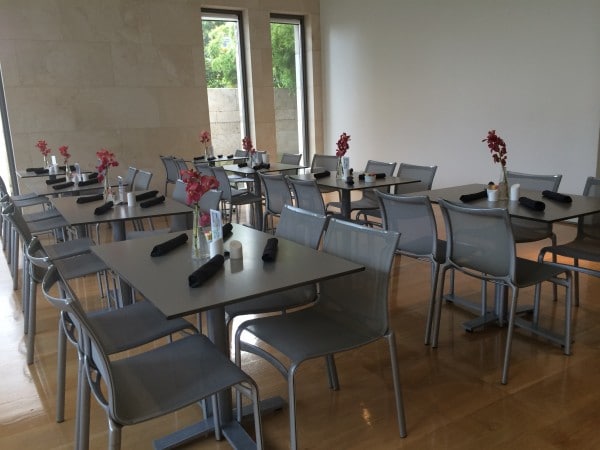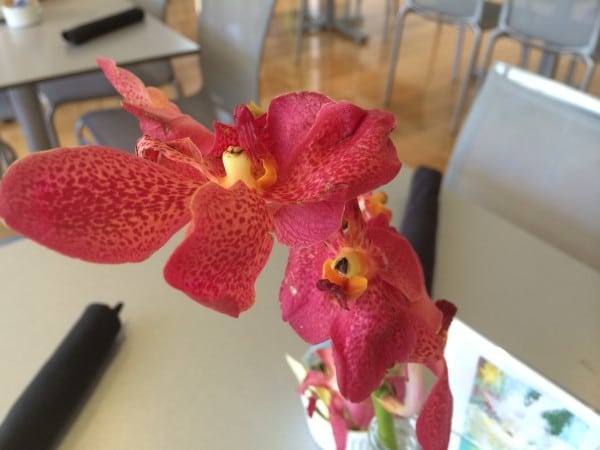When I was ten years old, my family moved into a neighborhood with a Jewish synagogue two blocks from our house. Each week, on Saturday, our streets filled with cars and those cars carried faithful, orthodox Jewish worshipers who drove to our neighborhood so they could walk to worship. It was fascinating to me, on so many levels. And, I’ve kept that image in my head—the image of Sabbath, and of religious behavior, and of family and devotion in all of our humanity.
In the white American Baptist church I attended through my childhood and into my late teens, I don’t ever remember hearing about the Sabbath. We didn’t talk about it in my family, either. But, it was clear, in my home, “the weekend” had a different rhythm than the rest of the week. Weekends were for working in the garden, visiting with friends, enjoying entertainment, cleaning the house, washing the bed linens, going to church, and, for my dad, taking a nap.
We had cousins who were Seventh Day Adventists and, from what I knew about them, the Sabbath meant going to church on Saturday, and abstaining from meat. It’s funny what kids pick up.
When I was eighteen, I started going to an African-American Baptist church, and that may have been where I first heard the idea the Sabbath was for me, too. There, I was taught the Sabbath is Saturday, and it is a day for rest, leisure, recreation, and connection with family. Sunday is the Lord’s Day, a day set aside for worshiping together and for giving honor and praise to God. But, it was also the day for Sunday Dinner, which meant someone was cooking something, and someone else was cleaning up the kitchen. The focus wasn’t so much on working or not working, but rather paying attention to the rhythms of work and rest, and making sure we all recognized it is God who makes it all possible.
All of these experiences, including my years in that Jewish neighborhood, have richly impacted my view of Sabbath. H and I recognize different people view the Sabbath differently. As a result, we don’t wash the car or cut the grass on Sunday, in a feeble attempt to not offend those who might be looking on and questioning our faithfulness (although, we certainly provide many other opportunities for them to question our faithfulness).
 I appreciate, especially, being reminded the Sabbath was made for us, and not the other way around. And, I really value the weekly invitation to turn my attention back to God because, invariably, my attention has shifted elsewhere by the time the Lord’s Day rolls around.
I appreciate, especially, being reminded the Sabbath was made for us, and not the other way around. And, I really value the weekly invitation to turn my attention back to God because, invariably, my attention has shifted elsewhere by the time the Lord’s Day rolls around.
I hesitate to say observing the Sabbath is a discipline, because that makes it sound a bit like work, to me, and that seems sort of like the antithesis of Sabbath. There is, however, something quite lovely about allowing the rhythms of work and rest—creation and recreation—to form a backdrop for our lives in a culture that continually presses presses presses for more more more. An empty square on the calendar is almost sacrilege.
Whether it’s Saturday or Sunday or some other day of the week, may be the least of the concerns when it comes to Sabbath. Instead, I believe God intends for the focus to be rest. Rest in him.
This week, at The High Calling, our theme is Reclaiming Sabbath Keeping and so, I’ve been thinking about Sabbath. Working with writers for this week’s theme reminded me of the different things we’re taught about Sabbath/sabbath (should it be capitalized? or not?). On what day is the Sabbath? And, how is the sabbath (Sabbath?) different from The Lord’s Day? And, what about The Lord’s Day? Does everyone hear about that? And, what about the Sabbath/sabbath is most important?
I’m wondering what you have to say about these things. Does Sabbath even matter? If it does, why? Clearly, I’ve got questions, and I imagine you’ve got some thoughts and answers, and perhaps some questions, too. Join us this week at The High Calling, where Laura Boggess is hosting a conversation about Sabbath. The series includes articles and reflections written by Glynn Young, Kimberlee Conway Ireton, and Shelly Miller, as well as posts linked up from members of The High Calling—people just like you. But, before you click through, take a few minutes to answer these questions, if you’ve got time:
- Do you have a particular memory of Sabbath? Please share it here.
- What did your church and/or family teach about the Sabbath?
- How do you observe the Sabbath (and do you capitalize the word, or not?)

